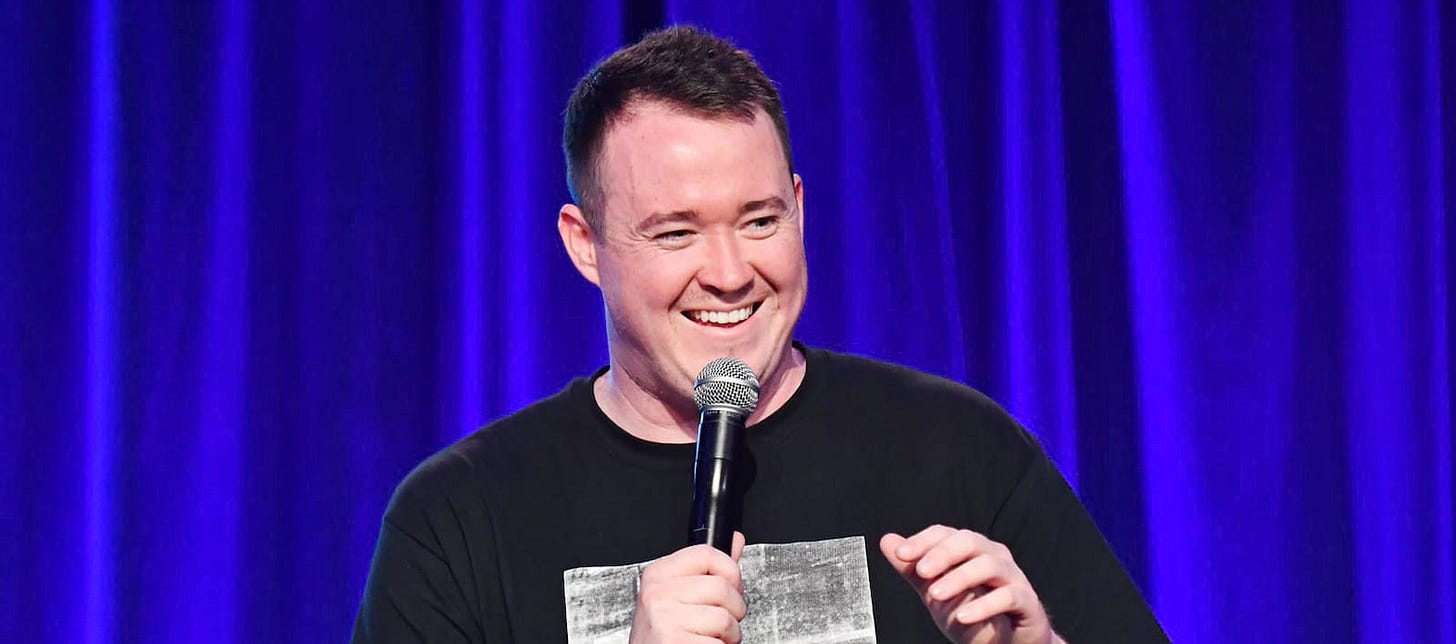MAGA's Funniest Foot Soldier
Shane Gillis is as dangerous as he is hilarious.
The “Uncle Danny” bit wasn’t the first time I heard of Shane Gillis—that honor goes to when, in 2019, he was hired and subsequently fired from SNL before the season even began. But it was what made me a fan. If you don’t belong to my demographic (18-29, male, the sort of person who deleted TikTok just to get hooked on YouTube Shorts), let me try and summarize: “I said ‘retarded’ there a couple times,” Gillis opens, addressing the audience of his 2023 Netflix special Beautiful Dogs. “My bad.” A pause for laughs. “I don’t know if you can tell by looking at me, [but] I do have family members with Down Syndrome.” He gestures at his face, his demeanor. “I dodged it, but it nicked me!” He pantomimes a boxer’s duck.






